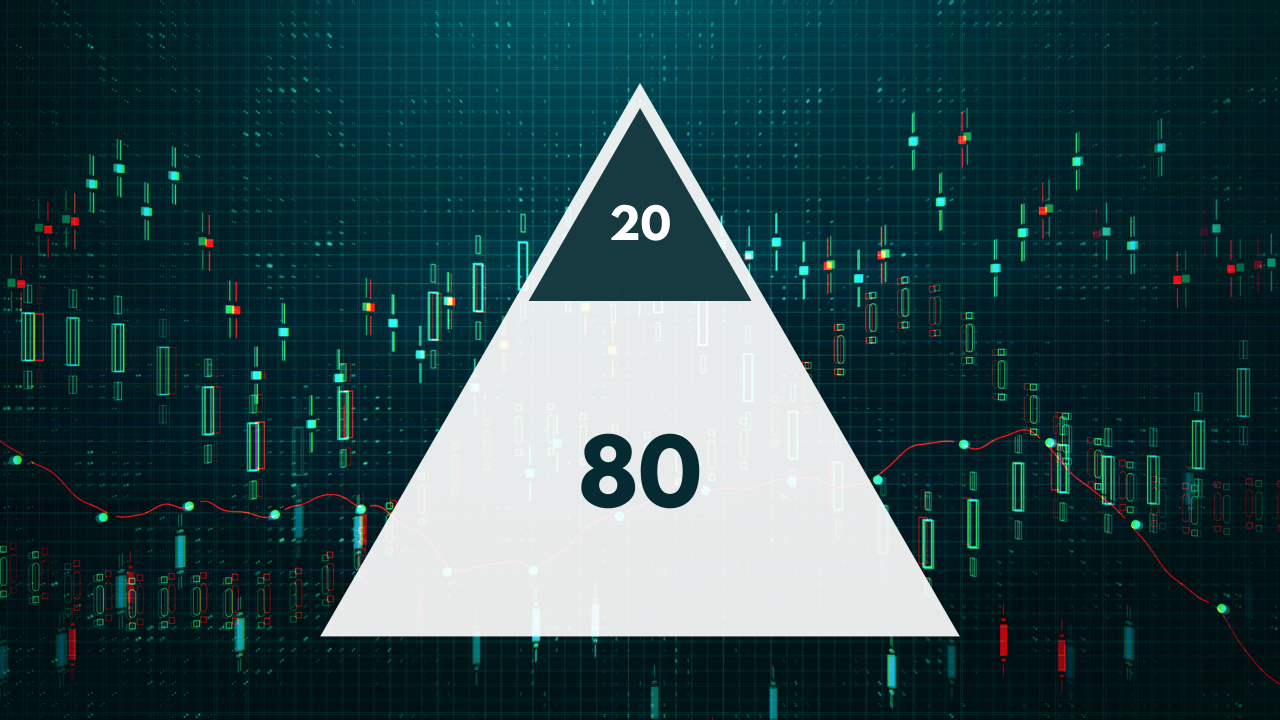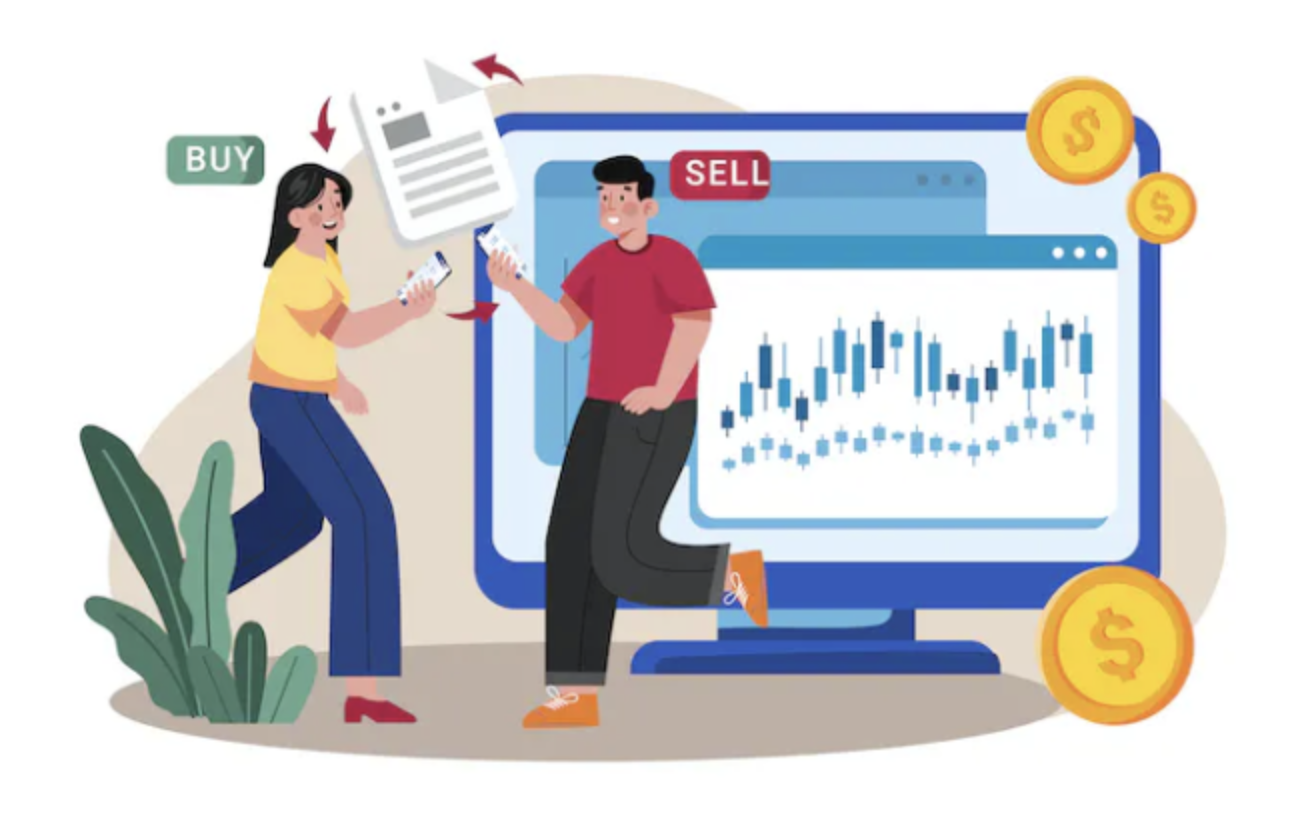Looking back at Navin's trading journey and applying the 80/20 Rule: How to Become a Profitable Forex Trader

The 80/20 rule, which is also known as the Pareto Principle, states that 80% of outcomes come from 20% of inputs. This principle can be applied to almost every aspect of life, including forex trading. In this blog, we look back at Navin's trading journey and apply the 80/20 rule in retrospect to identify the most impactful areas for growth and how he became profitable (and how this allows him now to prioritize these things in the way he teaches his 1-on-1 students).
Identifying 20% skills with the most impact
The first step was to identify the 20% of skills that had the most significant impact on Navin's profitability. After analyzing not just Navin, but also other successful traders, we found that risk management, strategy development, and psychology (which we prefer to call management of emotions) were the key areas that contributed the most to becoming profitable. This is probably not a huge surprise that these came up time and again with whoever we analyzed. However, it is still a good confirmation, so we can focus on these and not get distracted with other things that have less impact.

Risk management is more than setting stop loss
Risk management is crucial in forex trading because it helps to control potential losses, so a trader's account is protected from blowing up at all times. Besides using stop loss (if you don't use it then please do), Navin also implemented a rule to never risk more than 2% of his account balance on a single trade. This approach allowed him to limit his losses and stay in the game long enough to see profits and become consistently profitable.

And besides that there are more skills and knowledge to this. Creating a system in which Navin could assess when he should risk less (for instance just 0.5%) and when to risk the full 2%, enabled him to even further reduce the size of the losses and increase the size of the wins.
A strategy that is more like a process
The next key area for Navin was strategy development. Learning the hard way, he discovered that successful traders have a clear and defined trading strategy, which includes specific entry and exit points, risk management rules, and money management guidelines. This goes far beyond the simple A+B=C strategies and covers a full fledged process that can be applied day after day. Over the years he constantly tweaked (and still does) this simple yet effective process that he can consistently follow. In turn, being able to rely on this process helps to reduce emotional trading and that will always improve the performance.

Psychology or emotion management?
Psychology is often acknowledge as a critical area for traders. And yes, it can be challenging to control emotions and stick to a plan when trading, especially when losses occur, but also holding on to winners can be difficult. There is always fear or greed to deal with. However, Navin has never liked to call it psychology, because it could imply that if you are not a profitable trader your psychology is not ok. He prefers to refer to managing your emotions, not just because it sounds more friendly, but also because it makes it sound a lot less daunting to overcome. None of use can control our emotions, but all of use can learn how to manage them (most of the time).

Over time Navin learned to remain disciplined and focused, even during the most challenging market conditions. And he also worked on building a strong mindset by developing positive self-talk, practicing mindfulness and meditation, and visualizing successful trades. And as mentioned before, having a process in place that helps built a plan for each trade, makes it a lot easier to manage the emotions that can negatively influence a trade.
Is trading for every kind of character?
In addition to the key skills mentioned above, there are some character traits that we have seen that also have a disproportionate impact on a trader's profitability. These traits include patience, discipline, and resilience. It's not a surprise to anyone that being patient and waiting for the right trading opportunities can lead to more profitable trades.

Navin also learned to remain disciplined and stick to his trading plan, even when the market conditions were not in his favor. Lastly, he developed resilience and learned to bounce back from losses quickly, which allowed him to stay focused and motivated towards his goal of becoming a profitable trader. And even now, he still pays attention to these things. As any human, these things always fluctuate and for instance discipline may not always be as good as it has to be. This again shows how important it is to be able to fall back to a process that you can rely on.
Final words...
In conclusion, using the 80/20 rule to identify and prioritize the areas that had the most impact during Navin's journey for growth, is an effective way to become a profitable trader. By focusing on the above Navin was able to develop a strong foundation and consistently make profitable trades. Additionally, leveraging character traits such as patience, discipline, and resilience play a significant role in Navin's success. With hard work, dedication, and a willingness to learn, anyone can become a profitable forex trader. However, with the knowledge and advantage of hindsight, we can fairly say that it took him many more years than it should have to figure out what to focus on and what to spend less time on or completely ignore.


